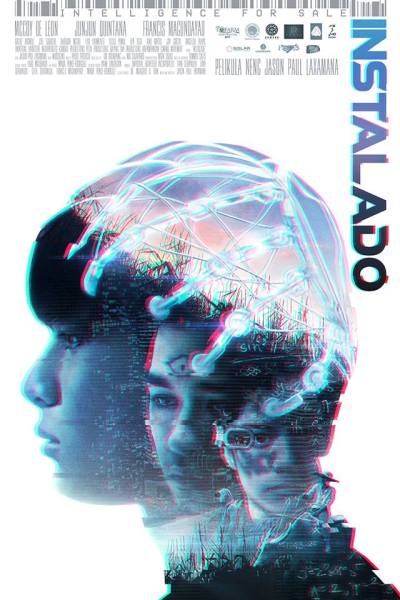EARLY THIS MORNING I watched the trailer for the upcoming Filipino science fiction movie Instalado. Directed by Jason Paul Laxamana, the film explores the idea of a future in which knowledge can be purchased and installed on anyone willing to pay the cost. The protagonist is Victor, a young farmer hoping for a better life for his family, and the narrative follows his quest to be an “instalado” or an “insta” despite his limited means.
The film is an entry to TOFARM Film Festival, a two-year old fest that specifically aims to “uplift the farmers [and their] personal development.” Set in a country whose economy is still arguably hinged on agriculture, Instalado boasts of a premise that is both significant and potentially radical.
In the trailer’s final scene, Victor speaks of the trite ideals often espoused by many Filipinos: that a better life is guaranteed as long as one works hard enough and believes in himself. His brother Rio innocently responds with a question, “Kahit hindi maging insta?” Is success possible even without being an instalado? Victor looks stunned and I, the over-reader of trailers, interpret this look as a moment of radical awakening. Of course not all hard work leads to success as there are systemic, often state-sanctioned barriers that prohibit everyone to have an equal chance at a decent life.
I’m really hoping that the movie does not disappoint, not only because of its promising story of subversion but also because it could pave way for more Filipino science fiction movies.
I have always been fascinated by Pinoy sci-fi or even just the idea of it. I remember a conversation I had with L over pancit canton many years ago. I told her about a short story that I read, Vlad Gonzales’ “Lunes, Alas Diyes ng Umaga” and its speculative premise that deals with parallel timelines and multiple universes. L, like most of us, was not aware that there were/are relevant sci-fi stories written in Filipino or, fine, Tagalog.
She then told me how English being our primary medium of instruction hinders the expansion of science-related prose written in our own language. We learn biology and physics in English. We know photosynthesis and gravity and torque but we use these very words even in Tagalog conversations; we’re just not aware of their Filipino translations.
Sci-fi, of course, is not limited to scientific breakthroughs that require complex research and the usage of technological jargon. But Sibika lessons have taught us about the Americans’ benevolent gift of education and how everything they have is far more superior. And while sci-fi could go beyond scientific terms, our colonial past and our unsurprising but incredibly backward adoration of the English language (i.e. magaling sa Ingles = matalino) has still stunted the growth of many, many things including written science fiction.
The state of technology in the country is also just as backward as our perception of English Almighty. The lack of general interest in the STEM field is pervasive even in affluent nations but it is more prevalent in a country that does not have its own tech industries and whose idea of outer space travel involves a sexy heroine in a red bikini and a fierce female alien with snakes on her headdress.
My friend S once shared how during pre-school graduation everyone in her class had to go up the stage and tell the audience what they want to be when they grow up. While her classmates declared their dreams of being a teacher or a doctor, S excitedly exclaimed “Paglaki ko, gusto kong maging astronaut.” The audience laughed at her.
We laugh at these things because to us, scientific leaps are way too much of a stretch. Sci-fi needs a solid realistic premise to stand on but the seeming impossibility of Filipino tech innovations stops us from further asking questions. There is no asking “what if?” when the current state of the country already screams a resounding “man, why bother?”
Fantasy is much easier to digest while sci-fi requires a level of verisimilitude that is currently not enough for us to suspend our disbelief. And this is another reason why Instalado is interesting: it marries the hyper-realistic concept of knowledge installation with the backwardness of the Philippines’ agricultural technology. This could be our own stab at cyberpunk, a cinematic exploration of a Filipino society with high technology but low quality of living.
The dearth of sci-fi stories and films in the Philippines reflects our colonial sensibilities and undeveloped national industries, but this must not keep our artists-writers-filmmakers from trying. When artificially intelligent robots turn against humanity and when the zombies invade the Earth, it is heaps more interesting to watch the people who are used to living in dire situations, who McGuyver their way to survival because they are forced to. Walang makain? Weno naman, sanay na. May robot? E pucha brownout. The bayanihan spirit could very well save the entire humanity better than any Marvel superhero could.
The featured image is from MyMovieWorld.

Leave a reply to Jolens Cancel reply